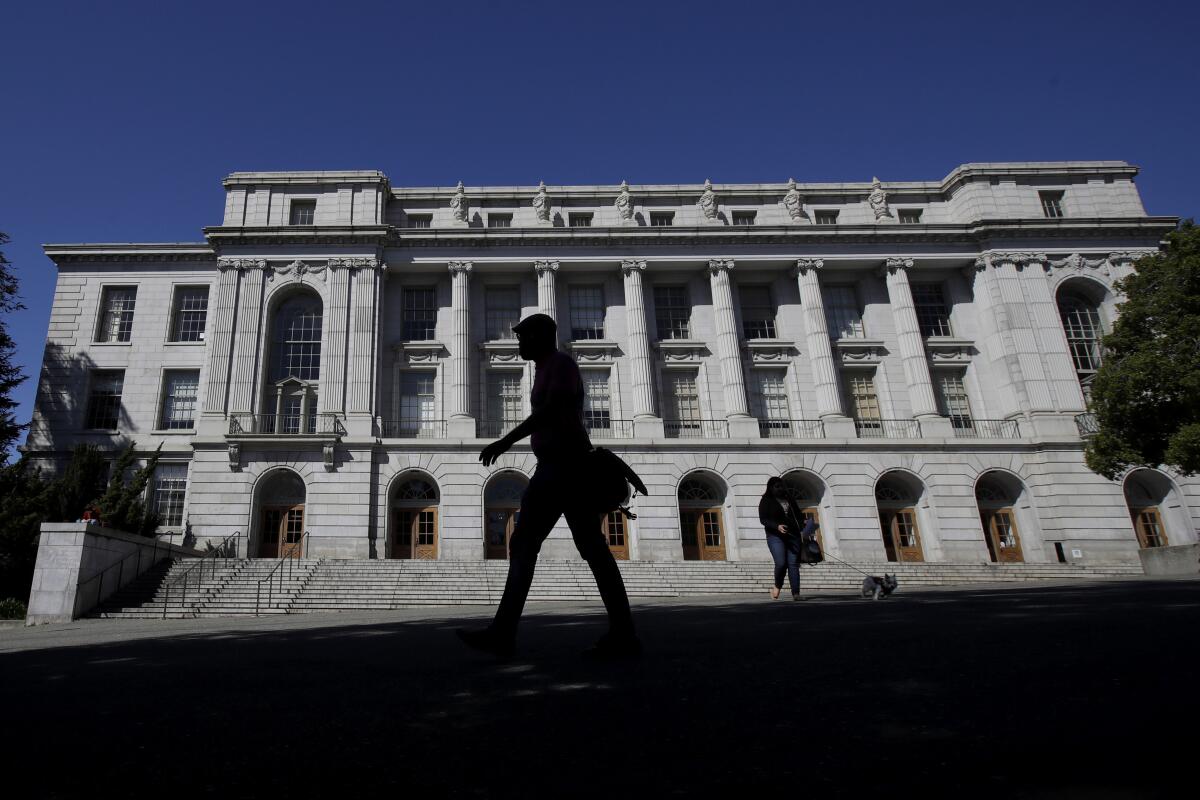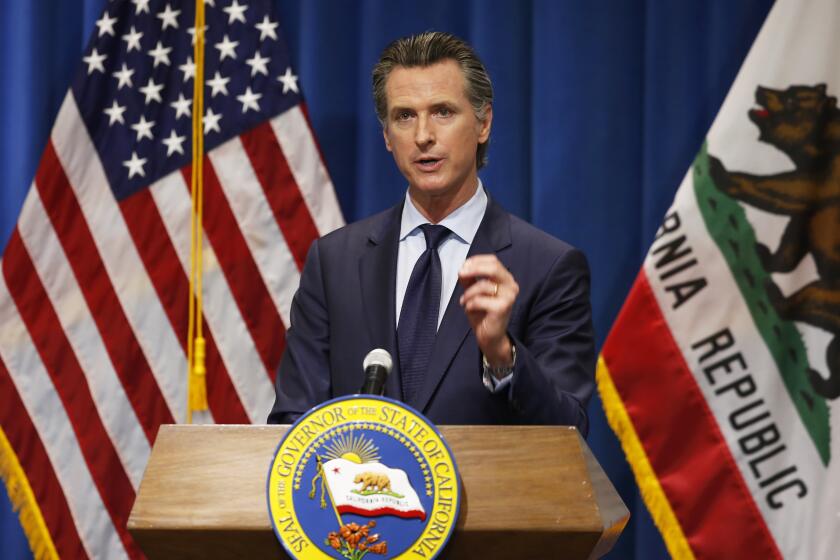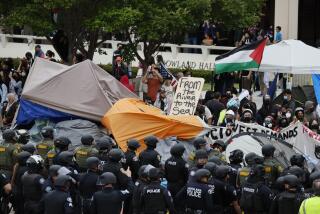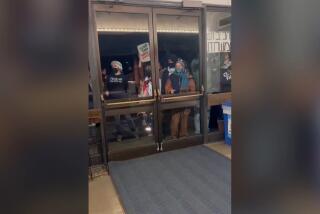UC Berkeley tells students to ‘self-sequester’ amid surge in COVID-19 cases

- Share via
UC Berkeley students living in on-campus housing have been told to “self-sequester” and stay in their dorms as much as possible for a week — and possibly longer — after the university reported a surge in coronavirus cases among undergraduate students.
The Monday directive, issued in response to a spike in cases over the weekend, said the university will reevaluate whether to keep it in place after Feb. 8. The announcement applies only to the limited number of students in residence halls, where some have tested positive. The university believes “small off-campus gatherings” have contributed to a rise in cases among students in off-campus housing as well.
“Over the last few days, the campus has had a surge in positive COVID-19 cases both in the residence halls and among students in off-campus housing, including some in the Greek life community,” the announcement states. “Many more students have been identified as contacts who were potentially exposed to the virus.”
The directive asks students to also wear face coverings in common areas within their household, and students should continue to be tested for COVID-19 twice a week.
UC Berkeley sent out a notice on Sunday warning that coronavirus cases were surging among undergraduate students on campus. The initial advisory said the university was “seeing a need to quarantine more students because they were exposed to the virus,” and campus housing for quarantining students was busier than usual. UC Berkeley reopened its campus last fall.
On Saturday, the university announced 44 cases among students and staff, and the weekly coronavirus positivity rate jumped to 1.2%, up from 0.4%. The university warned students against gathering in large or small groups and to continue following safety protocols. Some local health orders were recently lifted, but the university reminded students that gathering indoors with people outside of their household was still prohibited.
To date, the university has confirmed 581 coronavirus cases since August, and the recent spike in cases was concentrated among undergraduate students. They accounted for 93% of UC Berkeley’s overall cases for last week, according to the university’s dashboard.
The budget plan unveiled today by Gov. Gavin Newsom underscores his desire to open campuses for K-12 students through $2 billion in grants and other measures.
Some UC campuses saw a rise in cases in early January. UC San Diego recently experienced a spike in cases after students returned to campus from the winter holiday. The university responded by increasing mandatory testing from biweekly to weekly and making self-testing kits easily available to students and staff. The university said it also moved students testing positive into isolation housing.
UCLA’s COVID-19 positivity rate appeared to also have increased in early January, but it has since fallen. The university has confirmed 2,508 cases, and students living in off-campus housing make up more than 1,500 of the cases. UC Irvine also saw a similar rise in cases in early January but has followed a similar decline in positive cases, with daily updates identifying just two positive cases on Sunday.
More to Read
Sign up for Essential California
The most important California stories and recommendations in your inbox every morning.
You may occasionally receive promotional content from the Los Angeles Times.












